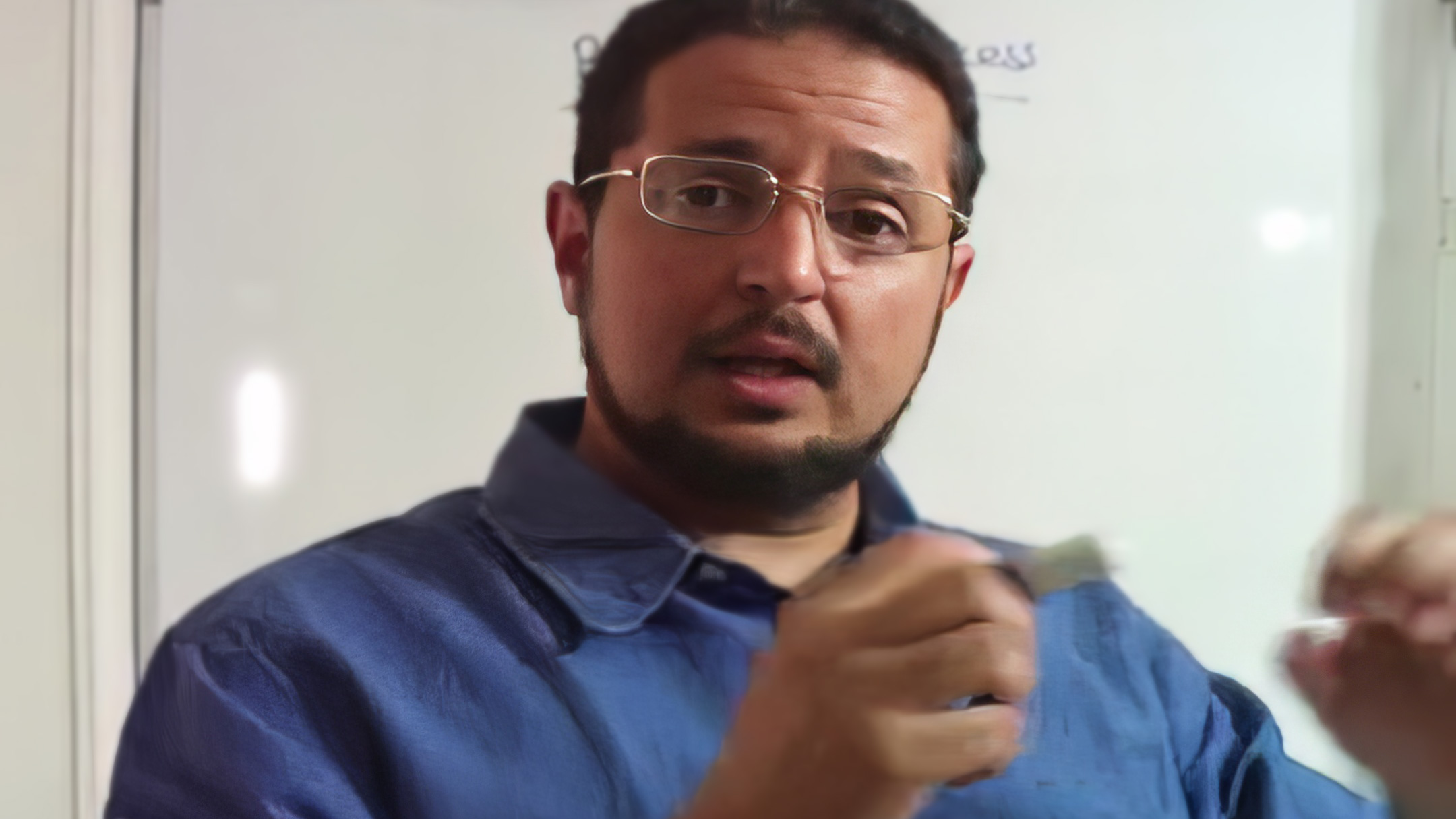Alum jailed without warrant
A professor who served as assistant to Egypt’s minister of higher education is stuck in an Egyptian prison.

In August, two MIT professors and an MIT alumnus drew attention to the plight of Seif Fateen, SM ’98, PhD ’02, a chemical engineering professor who has been imprisoned in Egypt since he was arrested without a warrant in 2018. After earning MIT degrees in chemical engineering and briefly working in the US, Fateen joined the faculty at the University of Cairo in 2005 and regularly posted educational videos to his YouTube channel, including a popular series on thermodynamics for chemical engineers. He served as assistant to the minister of higher education from 2012 until a July 2013 coup toppled President Mohamed Morsi, ending Egypt’s brief period of democratic rule.
In November 2018, security officers raided Fateen’s home, arrested him without a warrant, and took him blindfolded to an undisclosed detention center. In March 2022, the Freedom Initiative, a DC-based human rights organization, reported that he’d been tortured and mistreated for more than nine months and then transferred in September 2019 to the Qanater prison complex, where as of September 15 he remained confined in a cell with more than 20 other prisoners for at least 22 hours a day.
Fateen is a highly regarded academic in Egypt, says Professor Alan Hatton, who served as his PhD advisor. Read more about Fateen’s situation in a guest column in the Tech by Hatton, professor emeritus of mathematics Haynes Miller, and Boston University professor Assaf Kfoury ’65, SM ’66, PhD ’73, at thetech.com/2022/08/03/seif-fateen.
Keep Reading
Most Popular
Large language models can do jaw-dropping things. But nobody knows exactly why.
And that's a problem. Figuring it out is one of the biggest scientific puzzles of our time and a crucial step towards controlling more powerful future models.
How scientists traced a mysterious covid case back to six toilets
When wastewater surveillance turns into a hunt for a single infected individual, the ethics get tricky.
The problem with plug-in hybrids? Their drivers.
Plug-in hybrids are often sold as a transition to EVs, but new data from Europe shows we’re still underestimating the emissions they produce.
Stay connected
Get the latest updates from
MIT Technology Review
Discover special offers, top stories, upcoming events, and more.